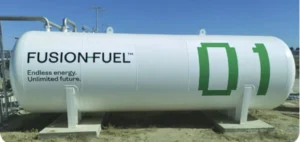Aramco is looking to strengthen its partnership with China in the exploration of hydrogen production.
The aim is to supply China with natural gas so that the country can decarbonize its hydrogen production.
Also, to develop CCUS techniques.
Aramco to strengthen hydrogen partnership with China
Decarbonizing Chinese hydrogen
At the Beijing Development Forum, Aramco (Saudi Arabian Oil Company) CEO Amin Nasser declared his willingness to strengthen the partnership between the Saudi national company and China in the development ofhydrogen and ammonia.
China is currently the world’s leading producer of hydrogen.
But most of it is produced from coal.
This highly polluting technique is likely to hamper its goal of achieving carbon neutrality by 2060.
Supplying gas, capturing and storing CO2
As a result, China needs natural gas to produce less polluting “blue” hydrogen.
Blue” hydrogen is less polluting, because the CO2 emitted during its production is captured and stored.
Aramco’s initial aim is to supply China with the gas it needs.
Secondly, it wants to work alongside China to develop CO2 capture and storage (CCUS) techniques.
Saudi Arabia, future world leader in hydrogen?
Saudi Arabia already has agreements of this type.
In 2020, it exported ammonia produced from hydrogen to Japan.
A world first.
This year, it sent its natural gas to South Korea in exchange for liquefied CO2.
Saudi Arabia wants to break its dependence on fossil fuels and diversify its economy.
In short, it wants to make hydrogen its new oil.
By 2030, it wants renewable energies to cover half of its needs.
Its ambition is to become the world’s leading producer ofgreen hydrogen.
To this end, a plant is currently under construction near the future megalopolis of Neom.
By 2025, it should be producing 650 tonnes of hydrogen per day.
That’s the equivalent of 15,000 barrels of oil, a far cry from the daily 7 million.






















